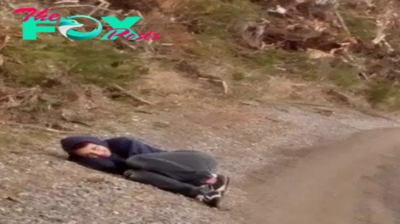Lifestyle
Hoarding and seniors: “The Consequences of Clutter” Report – Herb Weiss
By Herb Weiss, contributing writer on aging issues
With the number of seniors afflicted with a hoarding disorder expected to skyrocket to over 14 million, on July 2 U.S. Sen, Bob Casey (D-PA), Chairman of the U.S. Senate Special Committee on Aging, unveiled a report putting the spotlight on its impact on older hoarders and their communities. For seniors those consequences include health and safety risks, social isolation, eviction, and homelessness. For communities, those consequences include public health concerns, increased risk of fire, and dangers to emergency responders.
According to the report, citing the Administration for Community Living’s 2020 Profile of Older Americans, the number of seniors in the U.S. is expected to increase from about 54 million in 2019 to over 94 million in 2060. “Because hoarding disorder disproportionately impacts older adults, experts worry that aging could fuel a rise in hoarding in the coming decades,” notes the report, quoting NPR Morning Edition’s Rose Conlon.
According to the Majority Staff of the Senate Aging Committee who wrote the report (with a whopping 270 citations), it was developed for information purposes only and does not represent the findings or recommendations formally adopted by the Committee.
Hoarding is a chronic and progressive condition
The report notes that this chronic and progressive condition impacts roughly two percent of the general population, while it affects about six percent of those over the age of 70.
“Hoarding disorder is a heartbreaking condition that is posing challenges to older adults, their families, and their communities across the country,” said Chairman Casey (D-PA) in a July 2 statement announcing his report. “The federal government has an obligation to ensure that Americans can age with dignity and this report makes clear that obligation must include doing more to address hoarding disorder,” he says.
According to Casey, the new report, “The Consequences of Clutter: How Hoarding Disorder Affects America’s Older Adults, First Responders, and Their Communities,” demonstrates the scope and severity of the challenges of this complex mental health condition and offers a path forward for how we can help people, communities, and local governments contend with this condition.
Local communities throughout the United States are already working to address cases of hoarding disorder, including through the formation of hoarding task forces to coordinate response efforts, says Casey’s report, noting that the local resources available often do not correspond with the level of challenge communities are facing.
Casey’s report issued a series of nine recommendations for how the federal government can increase support to communities that are contending with hoarding disorder, including expanding access to treatment for the condition, providing local officials with more extensive guidance and training to support afflicted individuals, and expanding the scope of tracking and research about how hoarding disorder is affecting individuals and communities nationwide.
The report compiles 55 requests for information, responses, and stakeholder statements submitted by non-profits, social services organizations as well as state and local governments to gather information to better understand the impact of hoarding in local communities.
“Overall, the report does a good job of outlining the importance of the topic and identifies the federal and state agencies that should be involved in assessment and intervention,” says Randy O. Frost, professor emeritus of psychology at Smith College and a leading researcher on hoarding and related topics.
“Hoarding Disorder is a relatively [recognized] new disorder, having just entered the DSM in 2013. Consequently, there are not identified agencies who can claim ownership of the problem and the potential solutions.” This report legitimizes this problem for attention from these agencies, says Frost, noting that this report also highlights the fact that the prevalence of hoarding is extremely high among the elderly.
“Severe cases are sometimes life threatening for the individual and those living nearby or those called in to provide help,” adds Frost.
An Expert’s take…
According to Frost, the report covers the important issues related to hoarding, including education of the general public as well as family, friends, and people suffering with the problem. It highlights the need to train professionals in best practices for intervention. An important assumption underlying the report is that this is a problem which touches many different social service disciplines, from first responders to assisted living facilities, adult protective services, animal control, mental health, public health, child health, elder services, etc. “When a local case is identified, in current practice, it is not unusual for 4 or 5 of these agencies to be involved, often not knowing what each other are doing. Integration among these agency professionals is crucial for dealing with hoarding efficiently,” he says.
“There is a lot more that could be said about this problem, and a lot more detail could have been included regarding specific recommendations,” he said, stressing that this was not the purpose of the report. “The report was to outline the problem and point different agencies in appropriate directions moving forward. It does so and is a welcome effort from a federal agency,” he says.
Spotlight on Rhode Island
“Hoarding is a serious problem that has apparently not been adequately addressed in Rhode Island as well as in the nation as a whole,” charges long-time advocate for vulnerable and marginalized populations Susan Sweet, former associate director of the Department of Elderly Affairs, and founder of the Rhode Island Minority Elder Task Force (RIMETF). “While it is present in all age groups, adults over 60 years have the highest level of hoarding behavior and the most risk because of diminished physical and often cognitive abilities,” she says.
“This report outlines the difficult life circumstances that elders with the problem of hoarding face. The Rhode Island network of aging programs and advocates for older adults do not have the resources to create and implement effective remedies,” warns Sweet. “I hope that shining a light on the issue will encourage policy, funding, and attention to what is a mental health issue and a complication in physical illnesses that create obstacles in attempts to help elders afflicted with the disorder,” she says.
According to Sweet, the Ocean State is one of the few areas and the only state that has organized a Hoarding Taskforce to point the way towards effective client management, education and training of eldercare healthcare, mental health programs and social work entities. The health and well-being of individuals and communities is greatly impacted by the fire hazards, evictions, safety issues, and other self-neglect problems that occur with hoarding behavior.
“Awareness of the prevalence of hoarding and the danger to our communities and citizens should quicken the pace of funding and support to combat this growing threat,” says Sweet.
Like Sweet, Robin Covington, a member of Rhode Island’s Hoarding Task Force, sees the value of the released Senate Aging Committee’s report on hoarding and its recommendations. “As an adult protective services caseworker I saw firsthand the implications of hoarding,” said Covington, who serves as Coalition Director of Saint Elizabeth Haven for Elder Justice. “Hoarding creates Health, fire hazard and safety risks, social isolation, eviction and homelessness,” she said.
“Often times, people who hoard don’t think they have a problem because of their attachment to their possessions, which makes it difficult to deal with”, says Covington. Because of its behavioral aspects a person with this behavior needs clinical assistance, she notes, not just decluttering of personal items.
Covington believes that there is a lack of programs and clinical support in place in Rhode Island to address the increasing problem of hoarding. However, the state’s Hoarding Taskforce is working on helping support case managers and providers by developing a workforce initiative to support individuals with clutter or hoarding tendencies.
Increase funding for Case Manager interventions
But more funding must be given to Community Action Programs who subcontract with OHA to oversee Adult Protective Services. “It’s pricey to cover the costs of visits, intervention and coordination of a clean-up company,” Covington says.
A lot of times when it is someone over 60, a report to Adult Protective Services is provided and a CAP agency case manager goes out and visits the older adult to put eyes on them and to help with an intervention like the coordination of a clean-up company, but that can be expensive, notes Covington.
As a Licensed Clinical Social Worker for over 23 years and RIMETF’s president Lori Brennan-Almeida has seen the negative impact of hoarding up close. For over 20 years, she has seen RIMETF provide emergency assistance to seniors age 55 and over to pay for services to clean their apartments to avoid eviction.
“Clinical intervention is necessary to stop seniors from hoarding”, says Almeida, stressing the importance of home-based therapy. “Grief counseling may be needed because a person often forms an attachment to compensate for a personal loss,” adds Brennan-Almeida.
“Without counseling, hoarding may well continue after the debris is gone from their apartment and the senior will just collect more items”, says Brennan-Almeida.
Keeping tabs on hoarding
“This is our first ever hoarding report,” says Misha Linnehan, Deputy Press Secretary for Sen. Casey. When asked if there would be a follow-up report next year, she stated: “There are currently no plans for another but it is always a possibility.”
Kudos to Chairman Casey and the Majority Staff for putting resources, time and effort into crafting this report. For those people in the trenches, future reports should be written and formal Senate Aging Committee hearings held to keep tabs on this growing problem and to determine if the recommendations from this first report are being implemented.
Don’t drop the ball on this one.
RI Hoarding Task Force
Janet Spinelli and Kelly McHugh are co-chairs of the RI Hoarding Task Force which is convened through the RI Elder Mental Health and Addiction Coalition co-chaired by Chris Gadbois and Janet Spinelli.
The RI Hoarding Task Force has two committees including the HD Task Force Toolkit Development Committee lead by Christopher Liu, an undergraduate at Brown University and the HD Task Force Website and Outreach Committee.
Anyone interested in joining the Task Force can email [email protected] More information and resources can be found at RIHoardingtf.ri.gov which is supported through the EOHHS Money Follows the Person Program.
For download a copy of the Senate Aging Committee’s hoarding report, go to chrome-extension://efaidnbmnnnibpcajpcglclefindmkaj/https://www.aging.senate.gov/imo/media/doc/the_consequences_of_clutter.pdf
___
To read more articles by Herb Weiss, go to: https://rinewstoday.com/herb-weiss/

Herb Weiss, LRI -12, is a Pawtucket-based writer who has covered aging, Health care and medical issues for over 43 years. To purchase his books, Taking Charge: Collected Stories on Aging Boldly and a sequel, compiling weekly published articles, go to herbweiss.com.
-

 Lifestyle2h ago
Lifestyle2h agoThe World’s ‘Dirtiest’ Man Did Not Shower For Over 60 Years – His Reason Is Shocking
-

 Lifestyle2h ago
Lifestyle2h agoBEN AFFLECK, 52, SEEN WITH MYSTERY WOMAN WHO’S A JENNIFER GARNER LOOKALIKE
-

 Lifestyle2h ago
Lifestyle2h ago“Girl Crush” von Leona Lewis und Adam Lambert
-

 Lifestyle3h ago
Lifestyle3h agoAdorable perrito desesperado lleva un suéter navideño mientras ruega por un hogar antes de que sea demasiado tarde.sena
-

 Lifestyle3h ago
Lifestyle3h agoJason Statham Strikes a Powerful Pose Alongside Sleek Supercars in Fast & Furious.lamz
-

 Lifestyle3h ago
Lifestyle3h agoShera, the famous security guard of Shandar Mobiles, dies in road accident
-

 Lifestyle7h ago
Lifestyle7h agoThis is the amazing tale of Amanda, an animal lover who stunned everyone with a gesture.
-

 Lifestyle8h ago
Lifestyle8h agoMan captures glowing figure shining through clouds


























